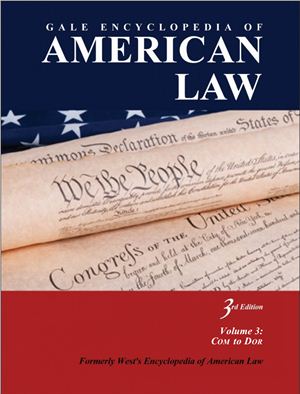Gale Group, 2010. - 550 Pages.
The U.S. legal system is admired around the world for the freedoms it allows the individual and the faiess with which it attempts to treat all persons. On the surface, it may seem simple, yet thosewho have delved into it knowthat this system of federal and state constitutions, statutes, regulations, and common-law decisions is elaborate and complex. It derives from the English common law, but includes principles older than England, along with some principles from other lands. The U.S. legal system, like many others, has a language all its own, but too often it is an unfamiliar language: many concepts are still phrased in Latin. The third edition of Gale Encyclopedia of American Law (GEAL), formerly West’s Encyclopedia of American Law, explains legal terms and concepts in everyday language. It covers a wide variety of persons, entities, and events that have shaped the U.S. legal system and influenced public perceptions of it.
The U.S. legal system is admired around the world for the freedoms it allows the individual and the faiess with which it attempts to treat all persons. On the surface, it may seem simple, yet thosewho have delved into it knowthat this system of federal and state constitutions, statutes, regulations, and common-law decisions is elaborate and complex. It derives from the English common law, but includes principles older than England, along with some principles from other lands. The U.S. legal system, like many others, has a language all its own, but too often it is an unfamiliar language: many concepts are still phrased in Latin. The third edition of Gale Encyclopedia of American Law (GEAL), formerly West’s Encyclopedia of American Law, explains legal terms and concepts in everyday language. It covers a wide variety of persons, entities, and events that have shaped the U.S. legal system and influenced public perceptions of it.

